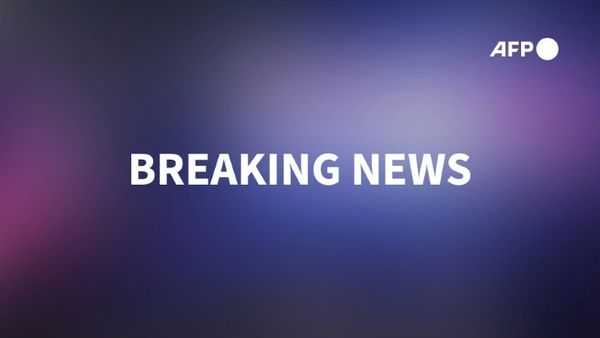
We're entering the season of giving. Over the coming weeks, Americans across the nation will gather with family and friends to celebrate the holidays and give selflessly to the people and causes they love.
Unfortunately, the Biden administration might be embracing the giving spirit a little too much. Federal officials may soon decide to give away key domestic assets — American intellectual property (IP) — to our rivals. This will have profound and dangerous consequences for U.S. workers and our economy.
At issue is a proposal before the World Trade Organization (WTO). It would waive patent protections for COVID-19 tests and treatments, which would normally be guaranteed around the world under the 1995 Agreement on Trade-Related Aspects of Intellectual Property, or TRIPS.
The WTO already approved one TRIPS waiver — with support from the United States — for COVID-19 vaccines in June 2022. Advocates for that waiver, primarily China and India, claimed that, by rejecting patent rights and allowing others to make copycat versions of vaccines, the waiver would make vaccines more readily available around the world.
However, as of today, more than enough vaccines have been made and distributed to inoculate the entire global population — without anyone ever relying on the IP waiver.
Indeed, there was no evidence that IP rights prevented any shots from getting into arms in the first place. And, today, the situation is the same for COVID-19 tests and treatments — there's no evidence that patents have reduced the supply of, or access to, those products.
Throughout the pandemic, many companies that had developed COVID-19 tests and treatments voluntarily licensed their proprietary technology to the Medicines Patent Pool. Companies such as Pfizer and Merck made their innovations available to qualified generic manufacturers, thereby expanding access to those products in low- and middle-income countries.
Today, largely due to these voluntary licensing agreements, and the end of the pandemic, the global supply of diagnostics and therapeutics actually exceeds demand. A recent report from the U.S. International Trade Commission confirms that fact. It notes that "only a small number of licensed manufacturers are producing [certain COVID-19 treatments], and demand for their products has been low." The report predicts that a "fall in diagnostics demand will likely continue."
In other words, if the Biden administration decides to support an expansion of the TRIPS waiver — and further undermine global IP rights — it would do nothing to improve the availability of those products or enhance global health. However, it will send a clear signal to American innovators and investors that research and development in health care is not valued and cannot reliably be protected.
About two-thirds of all new drugs in the world come out of American labs. But it wasn't always this way. From at least about 1980, we've doubled our discovery of new drugs through laws and policies that enhanced our intellectual property protection system. America has consistently urged other countries to tap into their own intellectual capital by doing the same. If, however, we were to retreat from advocating for global respect for IP rights, we would discourage the devotion of time, talent and treasure to innovation and especially in the risky and complicated world of drug discovery. That approach would violate the principle precept of health care: First, do no harm. Such a retreat might not kill domestic drug discovery, but it wouldn't help.
Consider the jobs created by research and development at life science companies. The U.S. biopharmaceutical industry supports more than 4.4 million jobs. In total, our life sciences companies and their partners contribute more than $1.4 trillion in economic output.
Without robust protection of IP, investment in American research and development will decline. Those jobs and associated economic success stories will begin to disappear. Skill sets will wither, and capital will flow to other markets. Ironically, to markets that have seen the historic success of our IP system and have imitated it. As our reversal only weakens our innovation ecosystem, theirs will get stronger.
Support for a further expansion of the TRIPS waiver would be giving away valuable American IP rights under the guise of social justice. It won't improve global health care, but it will enrich competing economies. It's not mere theory. One of the waiver's principal sponsors, China, has a well-documented history of IP theft to support its domestic industry, and to lure talent and investment away from the United States.
A decline in life science research anywhere is a decline everywhere. As fewer medicines are invented here, the world will be less prepared for the next pandemic. U.S. companies have a history of voluntarily sharing their discoveries in response to health care crises, from HIV treatments to COVID-19 vaccines. We shouldn't expect similar behavior from those who would take away IP rights unilaterally.
Put simply, the upcoming season of giving shouldn't extend to American intellectual property. The Biden administration has an obligation to protect the fruits of American innovation — for the sake of our technological and economic interests, our labor force and for global health.
Brian O' Shaughnessy is chair of the IP Transactions and Licensing Group of Dinsmore & Shohl, LLP, and a past president of the Licensing Executives Society (USA & Canada), Inc. He also serves as chair of the Bayh-Dole Coalition Board of Directors.
(Opinions expressed in this article are the author's own.)







